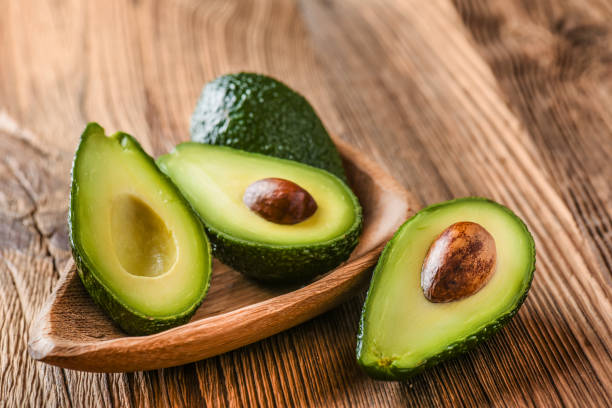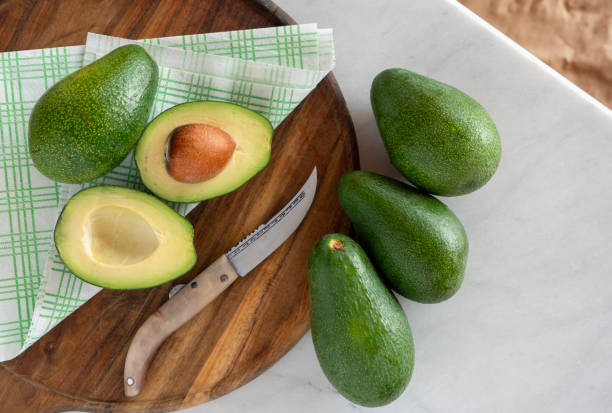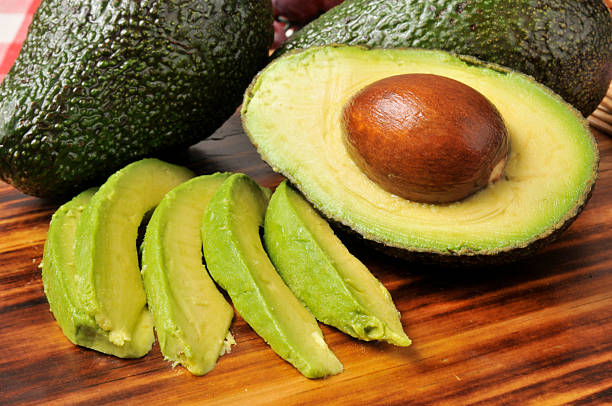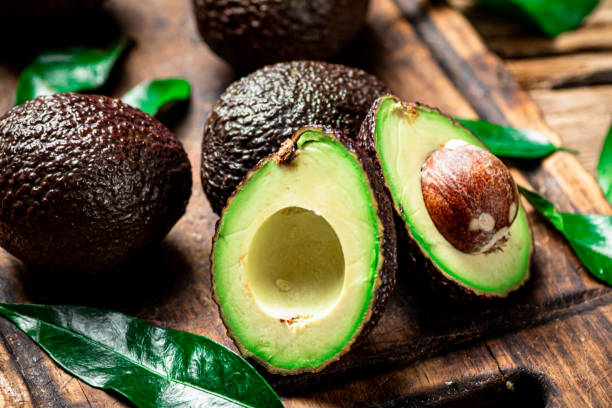Introduction: Avocados and Diabetes: A Perfect Match?
If you’re managing diabetes, you probably already know how important it is to keep your blood sugar levels stable. A healthy diet plays a major role in this, but finding foods that help control blood sugar can make a big difference in your overall health. One food that’s gaining attention for its ability to support diabetes management is the versatile avocado. Rich in healthy fats, fiber, and key vitamins, it offer many health benefits, including helping regulate blood sugar levels.
In this post, we’ll dive into how avocados can help manage diabetes, explore their nutritional benefits, and share creative ways to add them to your meals for better blood sugar control.
Why Avocados Are Good for People with Diabetes
Avocados are a great choice for people managing diabetes because they offer a unique mix of healthy fats, fiber, and antioxidants, all of which contribute to better blood sugar control. These powerful nutrients work together to help stabilize blood sugar levels and promote overall health. Here’s how it can specifically support diabetes management:
1. Healthy Fats That Help Stabilize Blood Sugar
Avocados are packed with monounsaturated fats, which are not only heart-healthy but also play a key role in stabilizing blood sugar levels. These healthy fats can improve insulin sensitivity, allowing your body to use insulin more effectively to regulate blood sugar. For people with type 2 diabetes, this is especially important, as they often struggle with insulin resistance. By including it in your diet, you can support better blood sugar control and overall health.
2. High in Fiber for Better Blood Sugar Control
Avocados are loaded with both soluble and insoluble fiber, two types that help slow the absorption of sugars into your bloodstream. This slow release of sugar is crucial for preventing blood sugar spikes after meals, which is especially important for people with diabetes. The fiber in avocados not only supports better blood sugar control but also promotes digestive health. Plus, it helps you feel fuller for longer, which can assist with weight management—a key part of controlling diabetes. Adding more fiber-rich foods like avocados to your diet can provide multiple health benefits and help you manage your blood sugar more effectively.
3. Low Glycemic Index
Foods with a low glycemic index (GI) are less likely to cause quick spikes in blood sugar levels. They have a naturally low GI, meaning they won’t lead to a rapid increase in blood sugar after eating. This makes them an excellent choice for anyone looking to maintain stable blood sugar levels, especially for those managing diabetes. Adding it to your meals can help keep your blood sugar steady, making them a perfect addition to any diabetes-friendly diet.

The Nutritional Powerhouse of Avocados
Knowing the nutritional benefits of avocados helps explain why they’re such a great choice for people with diabetes. Packed with essential nutrients, it provides a rich source of healthy fats, fiber, vitamins, and minerals that support overall health and blood sugar control. By understanding what makes them so nutritious, it’s easy to see why they should be a regular part of a diabetes-friendly diet.
Healthy Fats (Monounsaturated and Polyunsaturated)
Monounsaturated fats: These heart-healthy fats are great for improving cholesterol levels by lowering bad cholesterol (LDL) and raising good cholesterol (HDL). Studies show that monounsaturated fats can also improve insulin sensitivity, which helps reduce the risk of complications related to type 2 diabetes.
Polyunsaturated fats: Although found in smaller amounts in avocados, these fats are also beneficial for overall health. Polyunsaturated fats can help reduce inflammation, which is important for people with diabetes, as inflammation can impact blood sugar control. Including both types of healthy fats in your diet can support heart health and better blood sugar management.
High Fiber Content
Total fiber: A medium avocado contains around 10 grams of fiber, which makes up a large portion of your daily recommended intake. This fiber plays a crucial role in regulating blood sugar levels by slowing the absorption of sugar into your bloodstream. It also supports healthy digestion, helping prevent issues like constipation. By adding it to your diet, you can boost your fiber intake, improve blood sugar control, and promote better digestive health.
Vitamins and Minerals
Vitamin E: This powerful antioxidant helps protect your cells from oxidative stress, which is especially important for managing diabetes. By reducing oxidative damage, vitamin E can support overall health and help prevent complications related to diabetes.
Potassium: Potassium is essential for maintaining healthy blood pressure levels. For people with diabetes, managing blood pressure is key to preventing complications, and potassium can help reduce the risk of high blood pressure, a common issue in diabetes.
Folate: Folate plays an important role in cell growth and repair, making it crucial for overall health. For those with diabetes, folate supports healthy bodily functions and can help manage diabetes-related health concerns. Adding foods like avocados that are rich in folate can provide important health benefits.
Low Carbohydrate Content
Avocados are low in carbohydrates, which makes them a great option for those following a low-carb or ketogenic diet—two diets often recommended for managing diabetes. Since high-carb foods can lead to blood sugar spikes, it provides a healthy alternative that helps keep blood sugar levels stable while still offering essential nutrients. Their low carbohydrate content, combined with their healthy fats and fiber, makes it a perfect choice for anyone looking to control their blood sugar.
How to Include Avocados in Your Diabetes-Friendly Diet
Adding avocados to your daily meals is simpler than it seems. Whether you’re looking for a quick snack or a nutrient-packed addition to your meals, there are plenty of ways to enjoy this superfood while keeping your blood sugar levels in check. Here are some tasty and easy ways to include it n your diabetes-friendly diet:
1. Avocado Toast: A Simple and Satisfying Snack
Avocado toast is a popular, quick, and delicious snack that’s easy to make. Simply spread mashed avocado on a slice of whole-grain or low-carb bread for a fiber-packed treat. To boost flavor and health benefits, top it with some fresh tomato slices, a sprinkle of chili flakes for a bit of heat, and a drizzle of olive oil. This snack not only tastes great but also helps support blood sugar control with its combination of healthy fats and fiber.
2. Guacamole: A Healthy Dip for All Occasions
Guacamole is a tasty and nutritious dip made with mashed avocado, lime juice, tomatoes, cilantro, and garlic. It’s a great snack or side dish that pairs perfectly with a variety of foods. For a low-carb option, skip the chips and serve your guacamole with fresh veggies like cucumber, carrots, and bell peppers. Not only does this create a healthier snack, but it also helps keep your blood sugar levels steady while providing a boost of fiber and healthy fats.
3. Avocado in Salads
Avocados are a perfect addition to salads, adding a creamy texture and a healthy dose of fats. You can enhance your salad by adding fresh slices of avocado to a bed of leafy greens. For a refreshing and blood sugar-friendly meal, drizzle a simple dressing made with olive oil and lemon juice. This combination not only boosts the flavor but also helps keep your blood sugar levels stable, thanks to the avocado’s fiber and healthy fats.
4. Smoothies and Shakes
Adding half an avocado to your smoothies or shakes is an easy way to give them a creamy texture and extra nutrients. You can blend it with ingredients like spinach, berries, and a plant-based protein powder to create a filling and nutritious meal replacement. This combination helps support blood sugar balance while providing healthy fats, fiber, and antioxidants, making it an ideal choice for those managing diabetes. Plus, it’s a quick and delicious way to enjoy a nutrient-packed drink any time of day.
5. Avocado as a Substitute for Butter or Mayo
Avocados make a great, healthier substitute for butter or mayonnaise in many recipes. You can spread mashed avocado on sandwiches or wraps for a creamy, nutrient-rich twist. It also works well as a base for making creamy dressings or sauces, adding healthy fats and fiber without the extra calories or unhealthy fats found in traditional spreads. Using avocado in place of butter or mayo is an easy way to enjoy a heart-healthy, blood sugar-friendly alternative in your meals.

Scientific Studies on Avocados and Diabetes
Multiple studies have examined the connection between avocados and better blood sugar management. One study, published in the Journal of Nutrition, found that eating avocados helped lower the risk of diabetes in people with high blood sugar levels. The study highlighted that the monounsaturated fats in avocados play a key role in improving insulin sensitivity, making it easier for the body to regulate blood sugar.
Another study, published in Diabetes Care, suggested that regularly eating them may help reduce the risk of metabolic syndrome, a condition that often leads to type 2 diabetes. The healthy fats and fiber in avocados contribute to improved blood sugar control, reduced inflammation, and better overall metabolic health.
For more information, you can explore these trusted resources from reputable institutions:
- American Diabetes Association
- Journal of Nutrition
- National Institute of Diabetes and Digestive and Kidney Diseases
The Benefits of Avocados Beyond Blood Sugar Control
While managing blood sugar is essential for people with diabetes, including it in your diet offers many additional health benefits. These benefits go beyond just blood sugar control and can help improve overall well-being. Here are some other reasons why avocados are a great choice for your diet:
1. Supports Heart Health
Avocados are packed with heart-healthy fats, such as monounsaturated fats, that can help lower bad cholesterol (LDL) levels while raising good cholesterol (HDL). This is especially important for people with diabetes, as they are at a higher risk of heart disease. By including it in your diet, you can support heart health and reduce the risk of cardiovascular complications, making them a beneficial choice for anyone looking to maintain overall well-being.
2. Helps With Weight Management
Avocados are rich in both fiber and healthy fats, which work together to help you feel fuller for longer periods. This can prevent overeating and make it easier to manage portion sizes, supporting weight loss efforts. For people with diabetes, maintaining a healthy weight is key to managing blood sugar levels and reducing the risk of complications. By adding them to your meals, you can enjoy a satisfying, nutrient-dense food that aids in weight management and supports your overall health goals.
3. Anti-Inflammatory Properties
Avocados are rich in antioxidants, including vitamin E, which help to reduce inflammation in the body. Chronic inflammation is often linked to insulin resistance, a key factor in the development of type 2 diabetes. By including avocados in your diet, you can help lower inflammation levels, which may improve insulin sensitivity and overall health. Reducing inflammation is especially important for people with diabetes, as it can lead to better blood sugar control and a lower risk of complications.

Conclusion: Add Avocados to Your Diabetes Management Plan Today
Avocados are more than just a delicious and versatile fruit—they are a powerful ally in managing diabetes. With their high fiber content, heart-healthy fats, and low glycemic index, avocados are perfect for stabilizing blood sugar levels. By incorporating avocados into your daily diet, you can enjoy benefits like improved insulin sensitivity, better blood sugar control, and enhanced overall health.
If you haven’t yet added avocados to your diabetes-friendly meals, now is the perfect time to start! Whether you enjoy them on toast, mixed into a fresh salad, or blended into a smoothie, there are endless ways to include this superfood in your diet.
Are you ready to start using avocados as part of your diabetes management plan? Share your favorite avocado recipes in the comments below, and let us know how this nutritious fruit has helped you improve your health!

